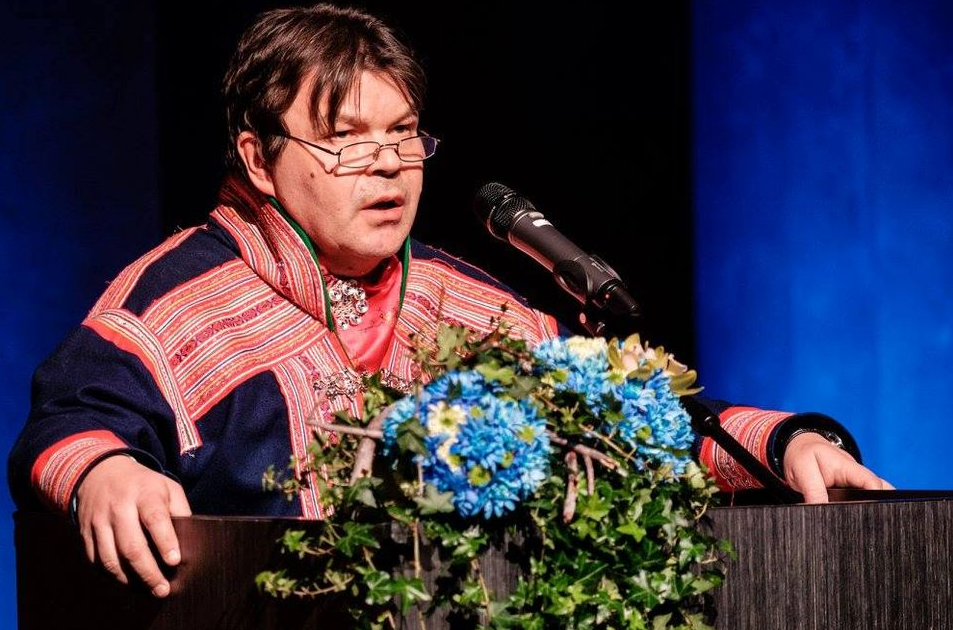Sámi politician calls Finland “racist country”

The former President of the Sámi Parliament in Finland has resigned from the indigenous people’s voter register to protest a decision by the Supreme Administrative Court to effectively define 93 people as Sámi, giving them the right to vote in upcoming Sámi Parliament elections.
Klemetti Näkkäläjärvi reacted to the court’s decision by saying that Finland is a racist country that protects the interests of Finns and the Finnish state and tramples on indigenous rights.
The run-up to the Sami Parliament elections on October 4 has seen a tussle over voting rights emerge in the Lapland community. The latest flare-up came Wednesday when Finland’s Supreme Administrative Court overturned a decision by the Sámi Parliament and added 93 people to the elections register. The decision will entitle them to vote in the election on Sunday.
Former Sami Parliament President Klemetti Näkkäläjärvi said he was shocked by the ruling.
“I reviewed the statement by the KHO (Supreme Administrative Court). I did not recognise the decision as being based on Sámi culture. My first reaction was of shock and horror. My worst fears have been realised,” Näkkäläjärvi said.
Näkkäläjärvi: Finland tramples on indigenous and minority rights
The former parliament head said the decision suggests that Sami rights are not protected by law.
“Finland is a racist country that protects Finnishness and the Finnish state and blatantly and unscrupulously tramples on the rights of its own indigenous people and minorities. The justice system reflects Finland’s moral environment. The Sámi are supposed to be protected by the constitution, the Act on the Sámi Parliament and international agreements, but that’s not the case,” he declared.
Later on Wednesday Näkkäläjärvi had himself struck off the voter’s list, saying that the Court’s decision was a prelude to forced assimilation of the Sámi people.
The row over who has the right to be classified Sami is a long-running one, and the determination has hitherto been made by the Sami Parliament, which has linguistic and cultural autonomy in its homeland in Finnish Lapland.
The decision of the Supreme Administrative Court has now been interpreted as a challenge to the constitutionally-recognised principle of Sámi cultural self-determination.
Nearly 200 appeals, close to half upheld
With Sámi Parliament elections due Sunday, hundreds of people applied to the Parliament to be considered Sami and therefore eligible to vote. The Parliament rejected some applications and nearly 200 appealed the ruling in the Supreme Administrative Court KHO, which deemed that 93 had the right to vote as Sámi.
Current President of the Parliament, Tiina Sanila-Aikio said she too was disappointed by the ruling.
“The Supreme Administrative Court is showing that the forced assimilation of the Sámi people is taking place. This is a question of the collective rights of the Sámi and not the rights of individual persons,” she remarked.
The court decision has however been welcomed by applicants seeking to be formally accepted as part of the Sámi community and therefore eligible to vote in the elections.
Researcher: Voting rights important to Sámi identity
Researcher Erika Sarivaara was one of the 93 appellants contesting the decision of the Sámi Parliament. She is well known in the community for her 2012 doctoral dissertation, which introduced the concept of the “Sámi without a status”. Sarivaara said that inclusion in the electoral register is an important part of Sami identity.
“Regardless of their Sámi roots and language the Sámi without a status are not official members of the Sámi community. Only those who have been entered in the áami Parliament’s electoral register have that status,” she observed.
Meanwhile Sámi Parliamentary member Anu Avaskari said that the KHO’s decision complied with the Sámi Parliament Act. She added that it was only right that people who spoke Sámi as their native language should be included in the register.
“The KHO has abided by the existing Act on the Sámi Parliament. The reasoning of the Sámi Parliament and the elections committee has not been compliant with the Act, because they emphasise group acceptance, which is not in the law,” Avaskari noted.
Sámi Parliament elections take place every four years in Finland and elect 21 representatives. This spring the Parliament accepted 500 new applications to join the register. Most were the children of existing voters.
There are roughly 6,000 voters on the electoral roll and about 10,000 Sámi altogether in Finland.
Related stories from around the North:
Canada: Nunavut gets EU exemption for seal products, Eye on the Arctic
Greenland: What the EU seal ban has meant for Inuit communities in the Arctic, Eye on the Arctic
Norway: Norway visa rules worry indigenous peoples, Barents Observer
Sweden: Sami demand rights as indigenous people, Radio Sweden
Russia: Russia brands Arctic indigenous organization as “foreign agent”, Barents Observer
United States: Arctic conference spotlights indigenous issues, Alaska Dispatch News



